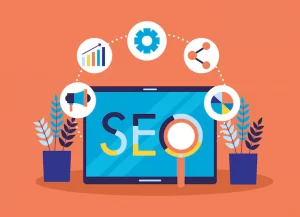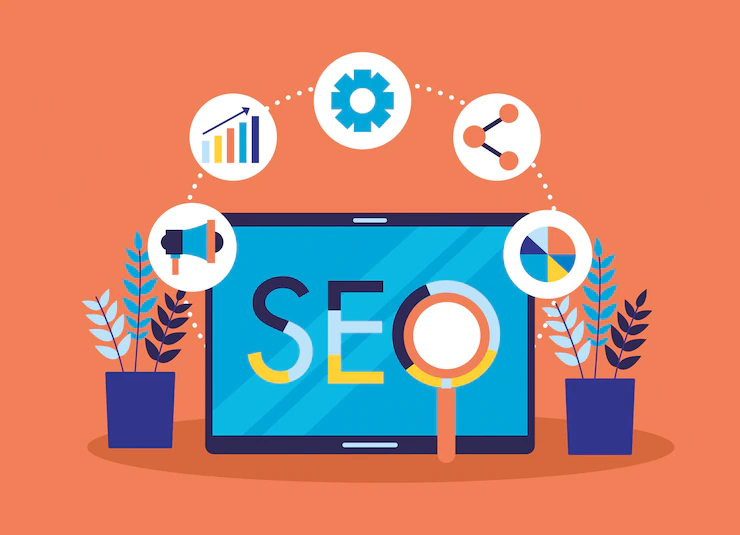Introduction
So you think you know what search engine optimization (SEO) is, but do you really? You’re not alone. SEO has become a bit of a hot-button term for business owners and marketing pros alike. For people who don’t work in this space or have any familiarity with it, SEO can be an intimidating concept. What is SEO, anyway? Why does it matter for your small business? And how can you get started?
We’re going to answer all these questions and more in our beginner’s guide to SEO. While we’ll focus primarily on search engine optimization practices that are relevant to your businesses, we’ll also throw in some practical tips and strategies along the way to help make your life easier as a busy entrepreneur. We’ll also touch on some of the common misconceptions that surround SEO so that you can better understand how it works before putting your time and money into it as part of your marketing strategy.
What Is SEO?
SEO stands for “search engine optimization” and, in a nutshell, it’s the process of increasing organic traffic to your website through search engines like Google.
SEO is often referred to as a long-term strategy because its results aren’t instant. It takes time for Google’s crawlers (the program that crawls all websites on the internet) to update their rankings once you change your SEO strategy. In fact, SEO is such a long-term strategy that some people have likened it to plant-growing: you water and fertilize your plants every day, but only see the fruits of your labor when they bloom months later.
Search engines use different ranking factors to determine how high a website should be ranked in the search results. They use two kinds of factors: on-page and off-page. On-page ranking factors are those directly related to pydots on each individual webpage, while off-page ranking factors are those related to external pydots that affect how well your pages rank in search engines.
Importance of SEO for Businesses
For businesses, SEO is important because it helps them attract more customers to their website.
The next section will break down the ways SEO can help your business.
- SEO helps businesses increase brand awareness.
- SEO helps businesses increase sales.
- SEO helps businesses increase revenue.
- SEO helps businesses increase customer engagement
Why Your Business Needs SEO
Here are some of the benefits you’ll receive from implementing an SEO strategy for your business:
- Increased traffic. When you implement an effective SEO strategy, your content will become more visible and accessible to the people who want it most. You’ll be able to reach a broader audience and maximize your brand visibility within the search engines.
- Improved user experience. There are many different aspects of user experience that need to be optimized if you want your website to perform well in search engines, including load time and overall style and design. As Google continues to evolve its algorithm and prioritize certain pydots, you can use an SEO campaign as an opportunity to evaluate how well these pydots work together for optimal results.
- Developing trust with your customer base. Your audience is looking for a reason why they should do business with you instead of someone else, which means that establishing trust is essential when building customer loyalty on the web. With better customer service comes increased sales and increased sales mean more revenue coming into your business! This means that not only do customers feel confident about buying from you before they even click onto your site, but they’re also more likely to come back whenever they need something new or different than what they’ve already purchased before (and then tell others how great their experience was!).
SEO Tips And Strategies For Small Businesses
- Start with a blog.
- Provide unique value.
- Do keyword research.
- Optimize your site for on-page SEO.
- Include keywords in your URLs, page titles, meta descriptions, and content body copy.
- Keep your content up to date and fresh. Update old blog posts and create new content regularly as well not just when you want to boost your rankings or ticket sales. This will keep readers coming back for more and encourage them to spread the word about what they’ve learned from you!
- Write unique title tags and meta descriptions for each page on your website and make sure they’re compelling! Your description should be no longer than 160 characters; this is also true of many other types of social media posts such as Facebook statuses (which can only be around 100 characters) or Twitter tweets (which can be 140 at most).
The goal here isn’t just to get high rankings in search engine results pages but also to engage readers so that when people see these snippets as part of their search results they’ll want more information about what’s being offered by following links back through which could lead them directly onto your site!
Conclusion
Search engine optimization (SEO) is a cost-effective marketing solution that allows both small and large companies to market their brand and increase online visibility. SEO is a long-term strategy with the goal of increasing your website’s organic traffic by making it easier for users to find you in search results. Additionally, SEO strengthens your brand by ensuring that all of your content is optimized with the latest best practices, which helps to improve your credibility as a business.
PS: If you need help optimizing your online business for search engines, kindly reach out to us today via www.ideaious.com/business or shoot us an email via [email protected] (We have worked with more than 50+ businesses from several industries over the course of 7 years and we believe we have what it takes to get you the results you want).









